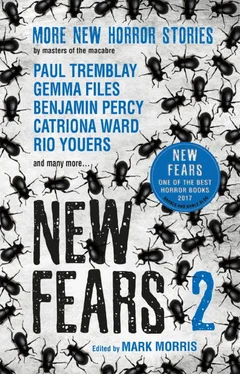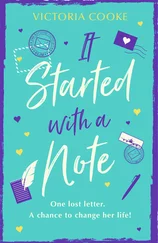The next morning, I woke alone, and she was dead.
* * *
I met Elodie on New Year’s Eve, at the house party of an artist friend whose opulent basement flat looked out onto Palmeira Square. Elodie sat alone in the courtyard garden as the clock struck midnight, chain-smoking rollups. She had blunt-bobbed hair, like a silent movie star; she wore a dove-grey silk dress, her legs bare, face pink with cold. I thought she was ridiculous. I thought she was beautiful. I brought her a flute of champagne and offered her my coat and she smiled. We shared rollups stained scarlet with the imprint of her lipstick and when morning came—red sun rising sluggish over the rooftops—I walked her home just to be with her for a little longer. We walked slowly along the seafront, her shoes dangling from her fingers, the sharp salt air scouring my smoke-heavy lungs clean. She knew all the homeless people by name, and wished them all a happy New Year. “I’ve been homeless more than once,” she told me, though she’d known me only a few hours. She used to say that if no one person could claim to know her better than the rest of the world, then nobody could ever own her.
She always was full of shit.
Her flat was a top-floor conversion on a shabby street near Hove station, the kind of place artists and loners lived; the kind of place people died alone, surrounded by empty vodka bottles and the black-scorched bowls of misused spoons. She didn’t ask me in for coffee, and I didn’t ask for her number. I thought I’d never see her again. I hoped that I would.
* * *
The next time I saw her she was a face in the crowd, dancing to the beat of a local indie band while I worked the bar. The band were regulars, and their fan base was small and loyal. I was sure I’d never seen her there before, but she knew all the words, whooped for joy when they announced her favourite song. She was breathless when she came to me at last, black hair plastered to her face with sweat. She smiled, greeted me with warmth, and even though her voice was half-swallowed by the din my name had never sounded sweeter in anyone else’s mouth.
She was one of the stragglers who stayed behind as the band packed up. It seemed that everyone knew her, that I had been stumbling around Brighton all these years oblivious to her influence. She sipped black rum through a straw and told me about herself. She was so bright, so effervescent that I felt shabby in comparison, embarrassed by the mundanity of my life. She frequently broke off mid-conversation to introduce me to her friends. Everyone was Elodie’s friend. She invited people into her life with such ease and yet, for those few hours, bathed in the spotlight of her attention, it seemed that I was the most important person in her world.
Elodie talked about herself like her entire life was a story in the midst of unfolding, and it ought to have sounded terribly pretentious but she was magnetic: she’d hitchhiked solo across Australia, lived on a boat in Amsterdam with a trio of sex workers who barely spoke English. She’d taken acid on a beach in Greece and seen the face of God in the water. She delivered this last anecdote with such sincerity that the incredulous laughter never made it past my lips. Her dark cat-eyes were trained intently on mine as though she could share her experience telepathically. As though she could show me God.
“What did He look like?” I asked, half-joking.
She smelled like cigarettes and sweat and rum. Her lips were silk against my ear.
“Everything,” she whispered.
* * *
They found Elodie’s body washed up on the beach. The Swedish boys had been the last people to see her alive. They’d parted ways with her at two in the morning. She’d seemed happy, they said. They had alibis, all of them. The only thing they’d done wrong was to leave her alone that night, but stupidity wasn’t a criminal offence. They could have saved her. They would carry that mistake with them for the rest of their lives.
Her pockets had been full of stones, the police said. She’d walked out into the water, under the pier, where nobody would see her in the dark. There had been no drugs in her blood, no alcohol. No signs of a struggle. The pieces came together: Elodie had walked into the sea, and Elodie had drowned.
I didn’t believe any of it.
Her parents must have come to collect her body, though there was no word of a funeral. Elodie spoke about her parents sometimes, but they seemed distant, and faintly sketched, as though they were purely hypothetical. She’d said they’d disapproved of her decision to stay in Brighton, where—they had opined— we would drag her down. We , the “druggies and dropouts and perverts”, who gathered on the beach six nights after her death to celebrate her short, vibrant life, who shed tears at the cruelty of it all; we , her legion of friends and acquaintances and ex-lovers, who built a bonfire and told stories of her: how special she had been, how rare and bright a jewel. It was bullshit. A grotesque pantomime in which Elodie, even in death, was the star. It was exactly what she would have wanted.
“It doesn’t feel like she’s gone,” Sean said, as we hunched side by side next to the dying fire and shared a cigarette. I trusted Sean as I trusted few other men; he and I operated under the unspoken agreement that what happened between us on the night of Elodie’s death was a one-off, and I knew his sudden appearance was not by virtue of scouting for exploitable weakness. “Sometimes I wonder if she was ever really there. You know? Like she was a dream we all had. She never felt real .”
I turned to Sean. He hadn’t shaved since Elodie’s death. His eyes were cow-large and sad. I chewed the inside of my cheek until the taste of iron flooded across my tongue.
“She was, though,” I said. Of all the lies I might have told, it was a lesser transgression. I could sense by the loosening of his shoulders that he was grateful for it. He lit another cigarette, and said nothing more.
I walked away from the fire, away from everyone else, bitter-mouthed and nauseous with stories of her. I stared out at the sea that had stolen her from me, and I pictured her: water spilling from between bruise-dark lips, eyes wide and sightless; skin blue-marbled, hair wet and glossy against her face like black blood. Exquisite dead girl, long-limbed and balletic on her mortuary slab. My beautiful narcissist. I’d known her more intimately than any of her lovers. I knew that she would never have chosen to die so quietly, so secretly, her pockets full of stones. I wondered why she’d put them there. Why she’d walked out into the water that night and let herself drown.
* * *
She rejected me gently, the way I imagine she’d rejected countless others. She explained that I met every single one of her criteria. I was as perfect a partner as she might hope for except for one very significant thing.
“I’m not gay,” she said, apologetic, as though what I kept between my legs was the sole obstacle to a great and profound love affair. I did not know what her criteria were. In all the time I loved her, I could never pare down her extensive list of partners to a common set of characteristics. The only hard and fast rule, it seemed, was that a cunt was a deal-breaker.
I burned with shame. I should have read her better. She was unselfconscious; she held herself with the easy confidence of one who has never learned to be ashamed, who has never had to repress and hide away. She was dressed as David Bowie that night. Another party, another performance. Bare skin beneath her jumpsuit. A beautiful boy under black light, a handsome girl in the glow of the streetlamps. And in the dark, a black-eyed angel; a long-limbed, perfect creature for whom binary notions of sex seemed quaint and inadequate. Strange, that someone so straight should wear queer so well.
Читать дальше












